From Visar Zhiti
The ninth part
Memory boards and bags…!
Continues from the previous issue
OTHER ARTS IN PRISON: “OPERATIC MUSIC”
Lec Kurti (1884 – 1948)
Name that remained unknown. But he also wrote the poems “Kërşendellat”, “Mrashtbulli”, “Sikur te mujsha”, “Lula Marnesha”, “Qe tuk aren” etc., and translated into Albanian great authors such as the Nobel laureate Pirandello, Poe, Pushkin, Gorky, Merimé, etc. About 800 pages of manuscripts remain from him. But he was a professional musician.
When Albania had become independent for three years, in 1915, he composed the opera “Arbëreshja”, the first that we know of and the first in the Balkans that we know of. Son of the composer Palok Kurti, the creator of the first musical bands in Shkodër and Gjakova.
Lec Kurti studied in Italy, completed high school in Pesaro and the Academy of Fine Arts for Music in Venice. Then he would graduate in Rome, but in Political Sciences and devote himself to diplomacy. There are many pieces of music in the manuscript, dating from 1908-1916.
After being exiled by the French in Corfu, he started his career as a consul in Bari, (1921-1922), then “Charged with Work” in Athens, when he received the title of “Honorary Citizen”. He will be the Representative of Albania at the League of Nations in Geneva and after November 1935 Minister Plenipotentiary of the Kingdom of Albania in London.
When Albania is invaded by fascist Italy, it refuses to hand over the embassy to the Italian representative; instead it delivers a note of protest to the British Government and calls on it to protect Albania.
With the same diplomatic fate as Faik Konica, invited by him, he goes to the USA to run the “Vatra” of the Albanians. He returns to his homeland in 1942…!
Opponent of communism, one of the founders of the National Front, vice president of this pluralistic organization, its president in Shkodër, and as he writes in his diary, he left a few days before the winners came!
Back in Italy, political emigrant in Rome, where he closed his eyes in 1948 at the age of 64. But everything was covered by the requiem of silence.
Father Martin Gjoka (1890 1940)
The music of the Franciscan friar would have more luck. He came from Tivari and was educated in Shkodër, at the school of the “Françeskan Fathers”, when Father Gjergj Fishta was the director, and then he was sent to Austria, where, in addition to theology and philosophy, he also studied music in Salzburg, with Professor Hartmann. He plays several musical instruments, pianoforte, flute and violin and composes first an “Ave Maria”, two other compositions “Liberty” and “Albanian Homeland” he dedicates to his two Albanian spiritual patrons, the musician Donat Kurti and At’ Gjecovit.
Before Albania’s independence was declared, he returned to his homeland, taught geography, German language at the “Illyricum” college in Shkodër, created the orchestra and gave concerts both for Easter and Eid. He composed constantly. In 1915, Father Gjergj Fishta’s work “Judas Macabé” was finished, the first opera was staged in 1917, when the Bolshevik Revolution broke out in distant Russia.
In 1922 he wrote the first symphony “Two flowers on the head of Skanderbeu”, with text by Atë Vicens Prennushi. It continues with the works of Father Leonardo De Martino. He wanted to make an album with preludes, with polyphonic and choral music, etc. The fascist occupation destroyed many things; the high school was closed because it refused to introduce the “fascist doctrine” into the school. Even musical instruments were confiscated by the fascist party.
Spiritually burdened, he died of a heart attack at the age of 50, at the end of winter, in February, in Shkodër, in 1940. This same year, at the beginning of the next winter, in December, Father Gejrgj Fishta also died. The bells were still ringing…!
Preng Jakova (1917 – 1969)
He is the author of the Opera “Mrika”, from 1959, which will be the first opera in socialism, with the libretto by the poet of Socialist Realism Llazar Siliqi…!
Preng Jakova was born in Shkodër in the same year, when his teacher Martin Gjoka had already composed and staged his opera, “Juda Makabé”
He was also educated at the “Illyricum” Lyceum; he became part of the musical band of his city, even its artistic director at the age of 18. He started to compose the first songs with folk motifs and taught music in the surrounding villages.
In 1942, he went to study music in Rome at the Santa Cecilia University, which he finished “brilliantly”. He returns to his homeland with the winners…!
They assign him to Shkodër to deal with the choir of the 1st Assault Brigade, but they arrest him because his brother is killed fighting against the partisans.
Even though he was released from prison, he would no longer be separated from the mania of persecution, which was not mania, but distrust, eavesdropping, neither persecution, which neither the marcheshe composed nor the revolutionary schematism in the opera “Mrika” could save him. . But the dictator Enver Hoxha liked it, he had to, he even asked for another opera “Skenderbeu”.
He worked with passion, he finished it, but he was criticized, the music should have been more revolutionary, mobilizing, not so churchy, etc., etc. In his secret solitude he also wrote elegy and requiem. He saw the murder of his brother, his arrest, which could be repeated, they had to be his opera… and he jumped from the window of the House of Culture, where he worked. He killed himself.
The burial could not be official, but the whole city took part in the funeral. And the band was able to perform medleys that he himself had written years before.
A woman composer, Dhora Leka (1923-2006)
Many well-known partisan songs, such as “From the boy’s chest”, are her compositions, which were sung during the war to her fellow soldiers, those who would punish her when they won. Maybe that’s why her song “Ne ato maja ripa-ripa”, was continued with the joke “Once I rode it, once I rode it”.
She is the author of the opera “A life in the storm”. They send him to study in the Soviet Union, in Moscow, at the “Tchaikovsky” Conservatory, and he returns as a teacher at the Artistic Lyceum of Tirana and is elected secretary of the League of Writers and Artists of Albania. He was suddenly expelled from the Party in 1956, as a liberal, and then condemned “as a sympathizer of the Soviet Union”, when relations with that country were broken.
He was released in 1963 and exiled to the surroundings of Berat, Lushnja and Fier. Not protected by anyone, not even by her influential musician or writer colleagues, she has become prey to the murderous games of the State Security.
With the fall of communism, she returns to Tirana, publishes a book of poems “Songs in the tribulation” (2008), where the greatest tribulation should not have been the war, but the peace brought by her comrades-in-arms.
She was given the title “People’s Artist” and a school was named after her. But he remained in poverty, amid the demo (n)cratic steps.
I had met him in Rome, so closed in himself, that he refused to come home, ready to sleep outside, without a hotel… it pained me, like an extinguished symphony.
Choir conductor, Milto Vako
He headed the lyceum, where Dhora Leka was a teacher, and he was taken to the “Tchaikovsky” Conservatory in Moscow and graduated as a choir conductor. He returns to his homeland and is assigned to the State Ensemble of Songs and Dances, not because the men of the state danced and sang, but those chosen by the state.
Then a choir conductor in the opera and in 1973, after the IV Plenum, that infamous against literature and arts, he was exiled to Tepelena and two years later he was arrested. They sentence him to prison, there in the hunger camp in Ballsh. He came out in 1982, but they left him as a worker, a school maintainer.
Communism had to fall, so that he could return to teaching at the Academy of Arts in the Chair of Canto and Conducting, but also of the choir in the Autocephalous Orthodox Church of Albania.
His concerts have been applauded abroad. He is also the author of texts. He holds the title “Deserved Artist”.
Singers in prison: Lukë Kaçaj (1924 – 2001)
From the Great Highlands, at the age of 9 they took him to the Franciscan College of Shkodra, at the “Illyricum” high school he had the poet Father Gjergj Fishta and the musician Father Martin Gjoka as teachers.
He came to Tirana with the liberation, but he was fired from the orchestra of the Artistic Lyceum as a “former Franciscan student”.
He works as a porter, but he had an amazing, epic voice, as if coming out of the caves… and some well-known musician, who was also a member of parliament, helped to introduce him to the Philharmonic choir, then a soloist in the Army Ensemble. How could that brave voice be left? They even take him to the Youth Festival in Bucharest, he performs Philip’s aria from the opera “Don Carlos” by Verdi and wins a prize.
They immediately send him to the Soviet Union, to Moscow and to the “Tchaikovsky” Conservatory, and he will be among the best in the world, the “Albanian Shaljapin”, they called him, however, he is neither in the Soviet Union nor in other countries, where they invited him to work.
He returns to Tirana, to the opera. With Rossini’s “The Barber of Seville” he once again amazed the stage of the “Balshoj Theater” in Moscow and the stages of the capitals of the countries of the communist camp. Similarly, with “Madam Batërflaj”, with “Rigoleton”, etc., he plays in the first Albanian opera in socialism “Mrika”, he sings in the Soviet-Albanian film “Skënderbeu”, he is a luthier, he performs in the Albanian film “Why are these falling drum”, etc.
Meanwhile, when Albania leaves the Socialist Camp and the “Warsaw Military Treaty”, he is forbidden to sing in the opera of his homeland. Then they arrested him on the steps of the Conservatory in 1973, accusing him of agitation and propaganda against the state, when he had only sung, and they sentenced him to 5 years in prison, but he thought it was too little, they also added the article of confiscation of property, but he there was nothing but the sound. They take him to Ballshi prison. His wife, Ana, sold blood, so that she could help Luka, get out of prison alive.
He left in 1978 and continued his former job, porter in fruit warehouses. In the New Market in Tirana, not far from the Opera. He died in his Shkodra in 2001. The presidents of the democracy decorated him with the titles “Great Master” and “Honour of the Nation”.
Stavri Rafaeli (1923 – 2011)
Tenor and scenographer. Studio in Golden Prague. He came from a well-known Korça family, connected to art; he sang and drew as a child, that’s why they took him to Athens to finish high school. It ended brilliantly in 1941, when he founded the Communist Party illegally in Tirana.
He returns to his homeland, mixes with the Anti-Fascist Movement, goes to the mountains and works with the partisan choir. It is with the winners. And they send him with a state scholarship to Czechoslovakia to graduate in Scenography. But he also followed the Kanto branch. He shines in both, he also shines in love, he wears a crown in Prague, in 1951 he marries a pianist from Budapest, Marian, and they return together to Tirana.
They work in the theater, in the opera, they entrust Stavr with the role of Knjaz in Dvorak’s first opera “Rusallka”, they go on tour to China, Mongolia and Vietnam, etc., etc., and send him to specialize in Moscow, in “Balshoj Teatër”, where he also excelled there with many roles. They send him to Vienna to a world student youth festival and he gets the second prize.
In Tirana, in addition to many roles in the opera, they would also charge him with the role of party secretary in the basic organization, but he was completely disillusioned with Albanian communism. He refused to separate from his wife, when the relations of Socialist Albania with other countries of the Socialist Camp broke down, despite all the great pressures. He decided to escape together with his brother, Thomain, an army officer, so that his wife would come and join them in Hungary.
They were caught trying to cross the state border, near the barbed wire, from Bilishti, a few steps away from the dream.
It was 1963. They were 4. The two brothers were accompanied by the journalist Vangjel Lezho and Franko Sara. Then the “group” was added with other arrests, the other journalist Fadil Kokomani, and the poet Trifon Xhagjika, and the researcher, translator and editor, Robert Vullkani, were also arrested.
Open trial in Tirana. They bring them handcuffed. It was not an opera, but a harsh reality. Accusation: agitation and propaganda against the Party, revisionist agency and treason against the motherland. Stavri Rafaeli is sentenced to 15 years in prison, while his officer brother, Thoma Rafaeli, is shot. And the poet Trifon Xhagjika. And they shot them. They don’t even have a grave. Others in prison. The two journalists would be shot later; they would be taken from Spaçi prison…!
The Hungarian Marie is exiled in the district of Fier.
The artist Stavri Rafaeli goes nowhere, on an infernal tour, to many prisons and hard labor camps and is released after 15 years, in 1978. His Maria was waiting at the prison gate. He was not even given prison time. She taught music in the schools of Fier, kept herself and her husband in prison.
And the dream came true after the 90s. Both fled to Hungary. They chose to live in a small town by the fabulous Lake Balaton, near hills and forests, where nature seems to be more human than human society.
However, Maria came to Fier another time, and was given the title of “Honorary Citizen”. In honor of her suffering and those who suffered around her, secretly giving her support, even if only looking at her with a sad smile.
Sherif Merdani, “Hero of the song of light music”!
I met him in Qafë-Bar prison. He had been in the prison of Spaçi, a miner and fell into the abyss of the gallery, the rocks of hell. They said he was killed. So dismembered, after taking himself to the hospital in handcuffs, they take him to the Burrel prison. And they bring it to us…!
It seemed like a painful song, what could be left of her, after she had been wounded by the hunters’ rifles and it was known where she had lost, while he suffered the ground, that patch of black land surrounded by barbed wire.
I had also seen him on stage, when I was a student. “What a beautiful voice he has”, we said, with a little sadness, with some distant, forbidden glints, as if they came from Italy or Great Britain.
In the few years of liberalism, one or two of them, at the beginning of the 70s, he became the singer of youth, of its hope, of the song that connected us to Europe, of love, of October, of the coast, of hands as secret spaces, of the Mother’s hymn, she sang in Italian and English and shone again at the 11th Radio-Television Song Festival.
The festival that the Party condemned. Plenum IV that “ate” the heads of artists, poets, writers, playwrights. Another singer was needed in prison. The sheriff did not have a good biography. The rich people of Korça were among them. His mother had been arrested since the first years, “they asked her to extract the gold” and the little Sheriff took his newborn brother in his arms and took him to his mother in prison to breastfeed him. He was waiting at the Iron Gate for the police to bring him.
Then Sherif grew up, became a teacher in the villages of Skrapar, in Librazhd he played the piano, the accordion, he became a well-known and beloved singer, that’s his fault, he was arrested and sentenced to 10 years in prison. After three years, again in court, they sentenced him to another 10 years in prison, because he had not agreed to become an employee of the State Security. They asked him openly and he openly refused them.
Deep, in the dark galleries of the mine, Sherif, a singer of light music, with the tenor Stavri Rafaeli and another prisoner, Hysen Xhani, of Tirana folk songs, organized a concert, with candles, for the other prisoners, “a miracle, one of the most unforgettable of my life”, says Sherif in one of his interviews after prison.
I also wrote a poem about him in prison. After 16 years, the Sheriff is released. It goes back to the song, where it left off. Communism had fallen. He punished us for wanting to sing “let it be”, he sang painfully with a trembling voice. With white hair, they sent him as a diplomat to Italy and Romania…!
And he still sang in concerts, now with his son…! Memorie.al
The next issue follows




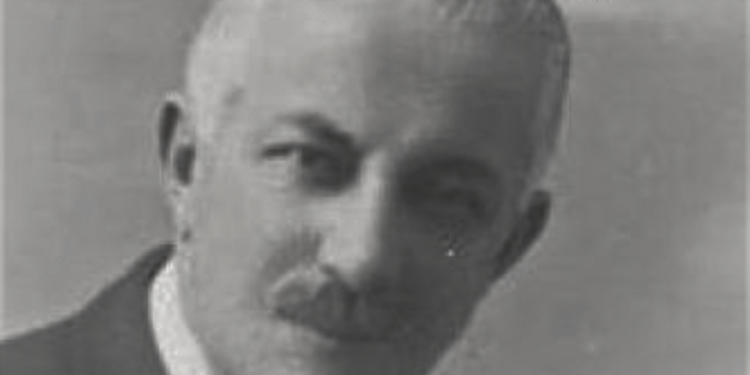
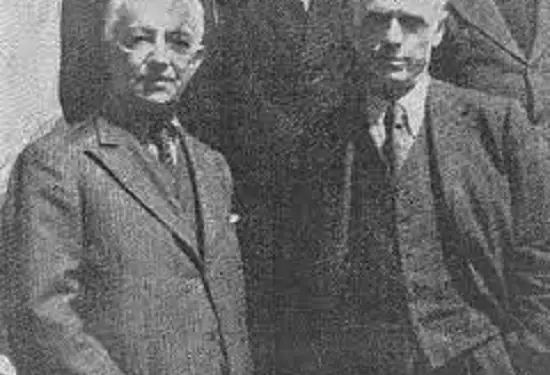
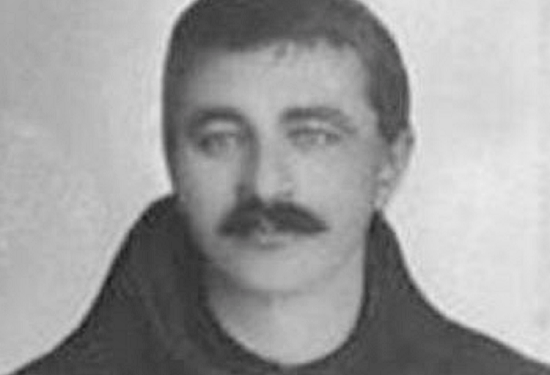
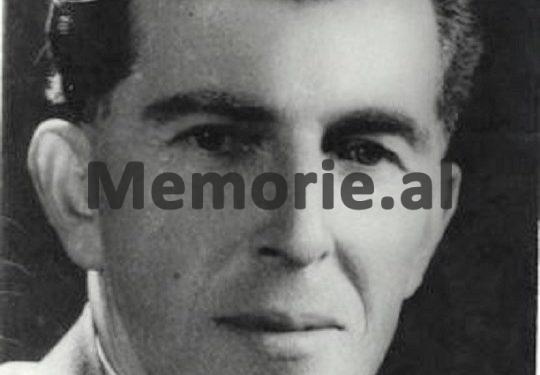
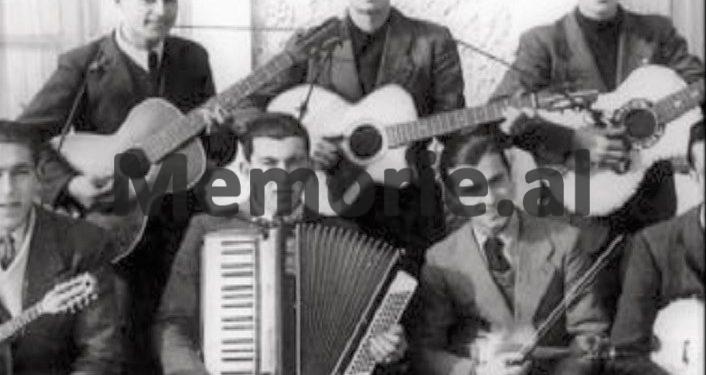
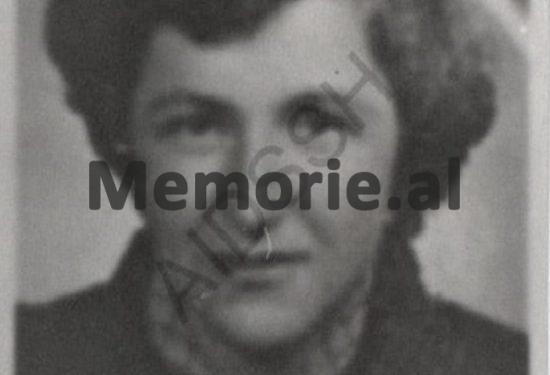
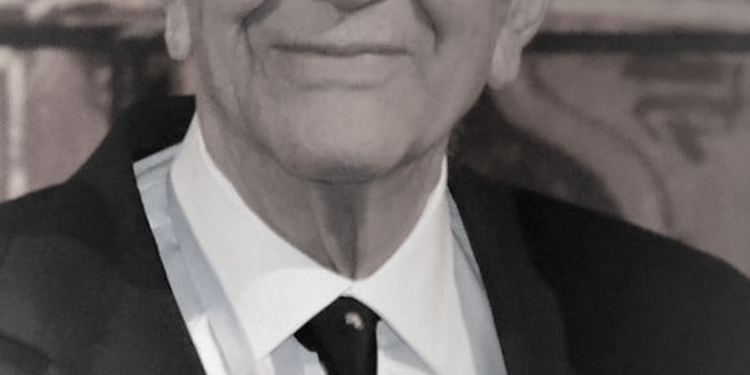
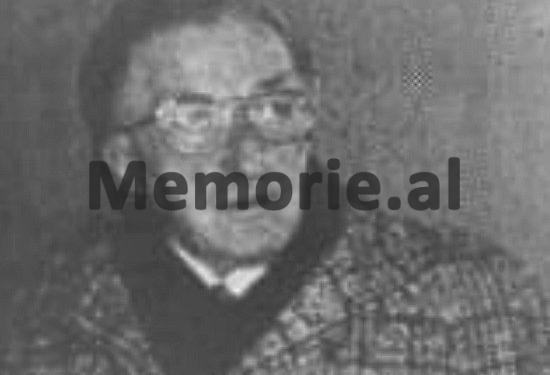
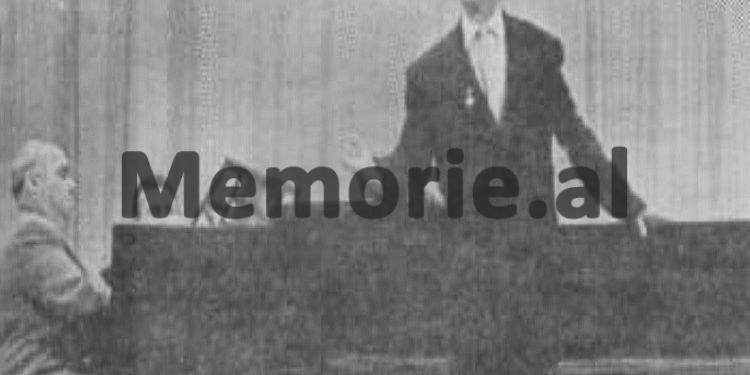
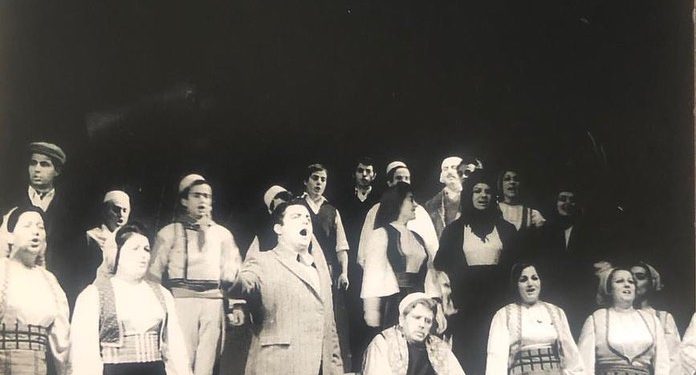
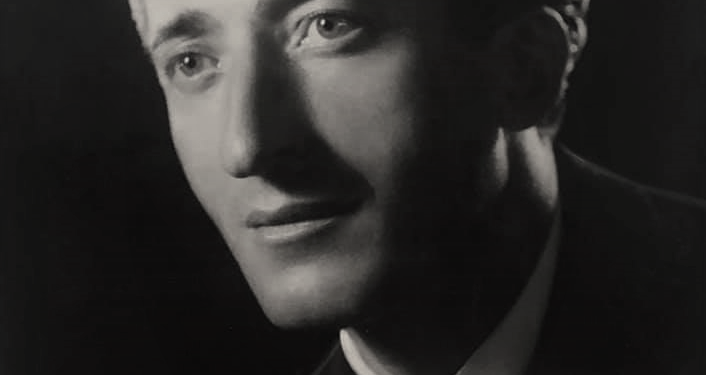
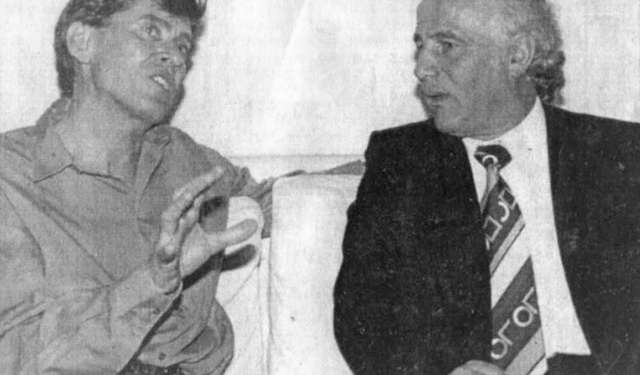
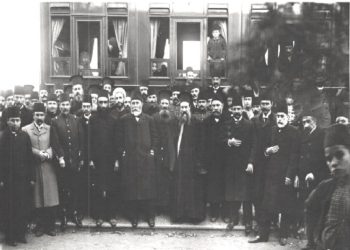
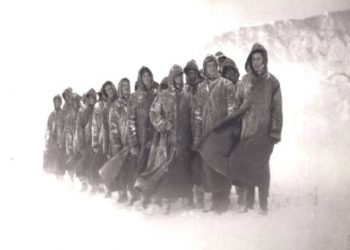

![“When the party secretary told me: ‘Why are you going to the city? Your comrades are harvesting wheat in the [voluntary] action, where the Party and Comrade Enver call them, while you wander about; they are fighting in Vietnam,’ I…”/ Reflections of the writer from Vlora.](https://memorie.al/wp-content/uploads/2025/06/admin-ajax-4-350x250.jpg)

